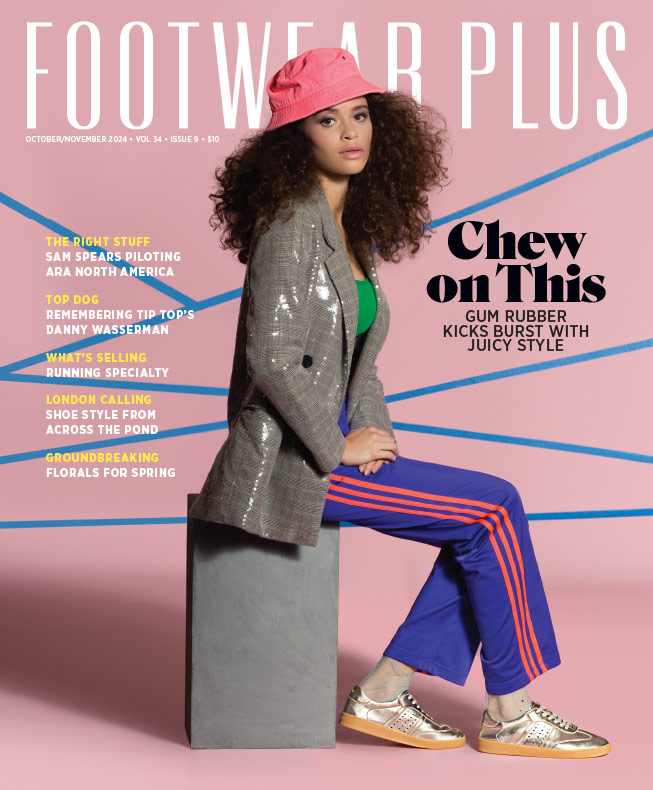 As a kid growing up in Northern New Jersey, I could usually be found on a playing field or a court. I chased down balls hit, kicked, or swatted at me year-round. In fact, I think I really might be part Golden Retriever.
As a kid growing up in Northern New Jersey, I could usually be found on a playing field or a court. I chased down balls hit, kicked, or swatted at me year-round. In fact, I think I really might be part Golden Retriever.
From spring through late summer, I spent hours fielding grounders, leaving the field covered in diamond dust. I played pepper with my older brother in our backyard night after night, until it got dark. He was really good and went on to play college ball, whereas I was more of a human backstop. But I took my lumps and bruises and, eventually, practice made better. I got to be a “decent glove,” as they say, although never much of a stick. (Hence, the journalism career.) My father, a die-hard Orioles fan, wanted to name me after Brooks Robinson, considered by many to be the best-fielding third baseman in history. I daydream, now and then, about how far I might have gone with that name because, as we all know, branding can play a huge role in success. Personal branding what-ifs aside, I loved playing baseball—the smell of the grass, the chatter among teammates, and the supreme satisfaction of snaring a hard-hit short hop.
From fall through early winter, I spent countless hours on soccer fields. I started out as a goalie, which seemed like a logical transition from baseball, as I was accustomed to trying to stop balls hit at me. This ball was bigger, and not nearly as hard. Easy enough, right? By the end of practices and games, I’d be smeared head to toe in grass and mud. While I got pretty good at stopping shots hit to my left and right, my downfall was above me. I wasn’t goalie tall, so any dreams of graduating to the Premier League were snuffed out by middle school. Still, I loved playing soccer. It really is a “beautiful game.”
I logged a fair amount of time on tennis courts, as well. My neighbor at the time was quite skilled, and he used me for practice. I’d chase down his forehand smashes and deft backhand lobs. Eventually, as those summer evenings wore on, I figured out how to put up a fight with decent rallies. He was a tough love coach who, unlike my older brother, never let me win. Turns out, what I loved most about tennis was that it was all on me—the good and bad shots. That’s probably why I transitioned well to bike racing during high school and college. It was (and still is) the sport that I believe best taps into my Golden Retriever DNA, with its pursuit of finish lines and a lifetime mileage log that offers milestones but no finality. And while bike racing is often a team sport, no one pedals for me. I love bike riding to this day—the mental escape it offers, the physical fitness attributes, and the efficiency of machine and man working as one, especially when that machine is (now) an Italian-made work of art with a carbon frame and wheels. As we all know in this industry, you often get what you pay for. There is foot covering and then there’s genuine wearable art as well as performance technology that truly makes a difference. It’s the same with bikes.
That brings me to this issue’s Q&A with Evan Schwartz, president of Aetrex (p. 12). Since he and his brothers Larry (CEO) and Matt (chief revenue officer) took the reins of the family business about 25 years ago, the company has continually evolved to get better at whatever it does. This now spans orthotics, footwear, and technology, the latter led by its Albert 2 Pro foot scanning devices. Now the brothers are applying their quest for improvement to benefit entire industry through a Foot.com data portal that harnesses the power of Aetrex’s 40 million (and counting) foot scans so all brands can potentially make better footwear. The exclusive data is a gold mine of information about feet, fit, function, and brand/style preference, Schwartz says. And if the idea works, wholesalers, retailers, consumers, and Aetrex all win. This is utopian in scope. Numerous brands are already in partnership, including direct competitors. It’s a potential game-changer. The fact that the Schwartz brothers are some of the most genuine and likable people in this industry makes rooting for their success that much easier.
As we all know in this industry, the playing field is in a constant state of flux. So are the rules. Winners, losers, all-stars, rookies, and veterans battle it out every day. You have to be prepared for whatever comes your way, just as you do in baseball, soccer, and tennis. And similar to cycling, there is no end to the road in this industry. There’s always “next season.” I love that about this game.



